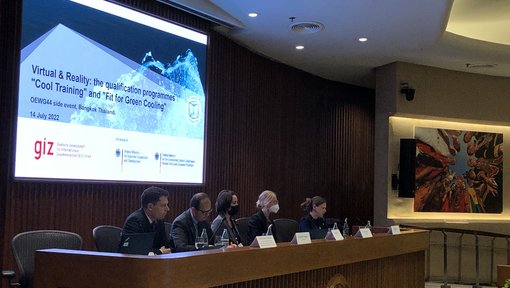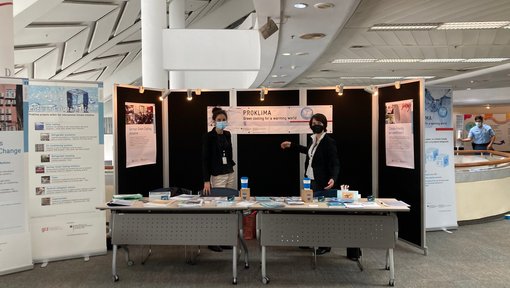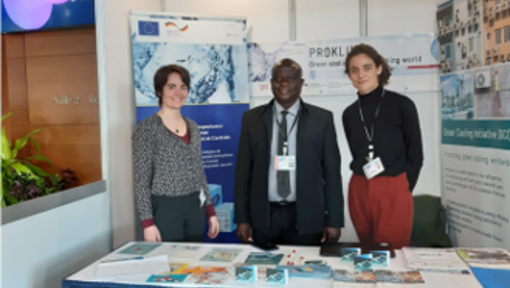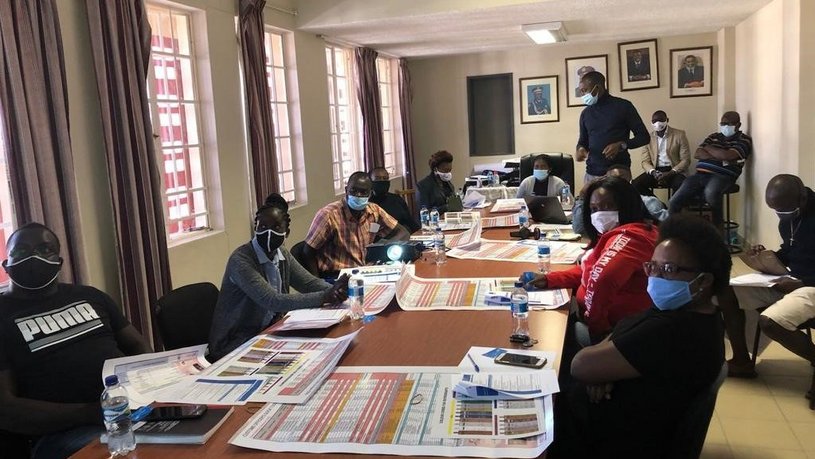The National Ozone Unit jointly with GIZ Proklima organised training sessions on the clearing of refrigerants used in cooling systems for customs and excise officials and clearing agents
Life on earth depends on the ozone layer. It protects us from harmful ultraviolet radiation and thus reduces health-related risks such as skin cancer or eye damage. At the same time, the ozone layer preserves marine and terrestrial ecosystems. The discovery of a thinning of the layer in the 1980s led to the signing of the Montreal Protocol, in which the international community agreed to gradually phase out ozone-depleting substances. Those substances are CFCs and HCFCs, which were mainly used for refrigeration (e.g. in household refrigerators) or air conditioning.
Today, the unauthorised trade of ODS is illegal in most countries. However, each country has its own responsibility to control imports and exports. Clearing agents are key players in preventing illicit trade of ODS across borders. It is important to train officials in the correct clearing of refrigerants used in cooling systems.
Text
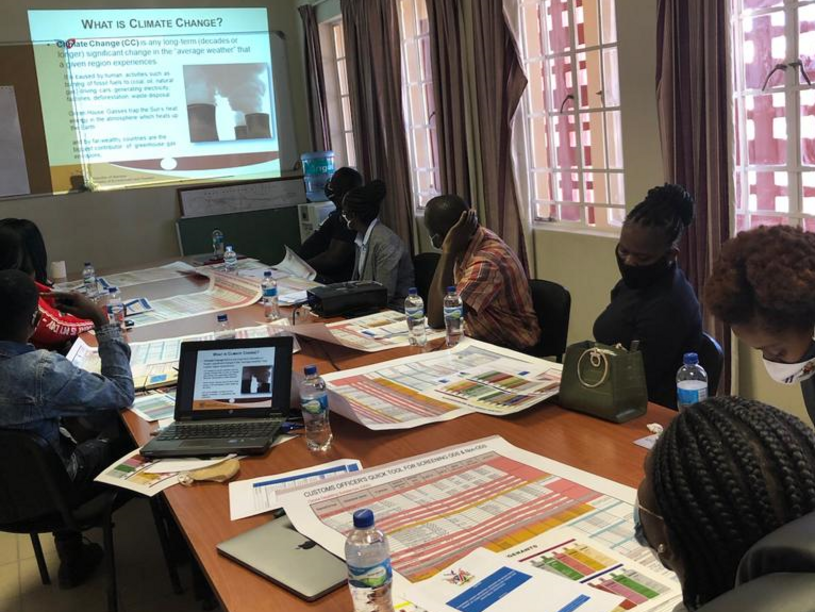
In collaboration with the National Ozone Unit in Namibia, through the Ministry of Industrialisation and Trade, GIZ Proklima organised training sessions within this regard. During the first day of the training, clearing agents learned to differentiate between refrigerants and were informed about common misclassifications that lead to data discrepancies that make it difficult for Namibia to report data accurately. Furthermore, the customs and excise officers were taught to be aware of the different smuggling methods such as false labelling on documents and concealment. In the course of this, refrigerant identifier machines were handed over to customs and excise to assist with refrigerant identifications during investigations. In the same vein, training tools & equipment were handed over to the Vocational Training Centre to assist with the training of technicians on the safe handling of environmentally-friendly technology.
The trade of refrigerants is monitored by the NOU and requires accurate identification to avoid misclassifications. In this way, the NOU ensures the viability of the annual statistical data that is reported as part of Namibia’s obligation under the Montreal Protocol.

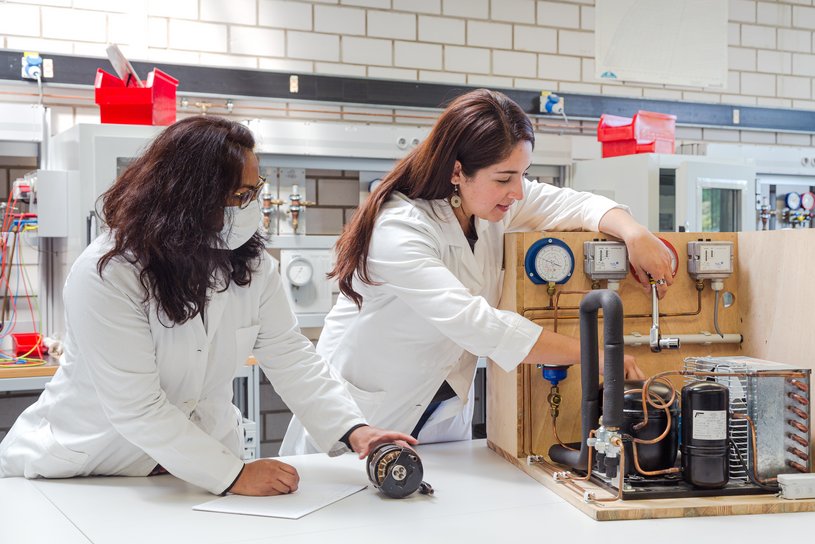 Image: giz / Andreas Döring
Image: giz / Andreas Döring